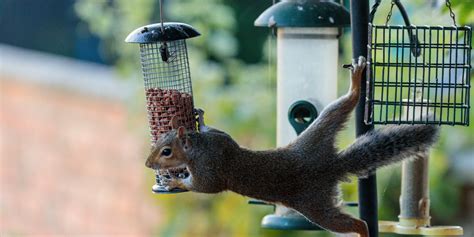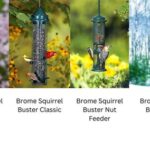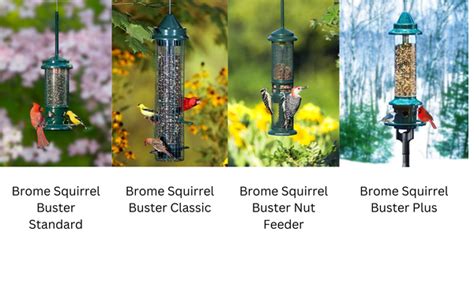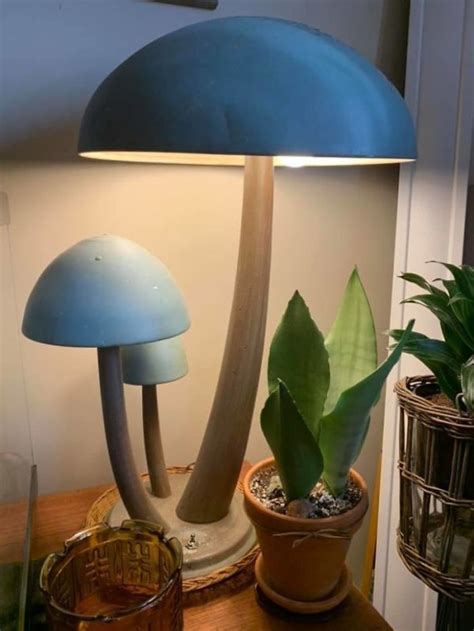
Squirrels bedeviling your bird feeders? Experts recommend adding safflower seeds to your birdseed mix, a seed that squirrels generally dislike, while attracting a variety of desirable birds.
Frustrated bird enthusiasts constantly seek effective ways to deter squirrels from raiding their bird feeders. According to ornithology experts, one simple solution stands out: incorporate safflower seeds into your birdseed mix. Safflower seeds, derived from the safflower plant (Carthamus tinctorius), possess a taste that squirrels typically find unpalatable, offering a natural and humane method for keeping them away while still attracting a diverse array of birds that appreciate this seed.
The Safflower Seed Solution: A Natural Deterrent
Safflower seeds present a practical, cost-effective, and wildlife-friendly approach to managing squirrel activity around bird feeders. “Squirrels typically avoid safflower seeds due to their bitter taste,” explains wildlife biologist Dr. Emily Carter. “This makes it an excellent option for bird lovers who want to feed their feathered friends without inadvertently providing a buffet for squirrels.”
The key benefit of using safflower seeds lies in their selective appeal. While squirrels tend to avoid them, many popular bird species, including cardinals, chickadees, finches, and nuthatches, readily consume them. This selectivity ensures that the intended avian beneficiaries receive the nourishment they need, undisturbed by persistent squirrels. Birdwatcher Michael Thompson noted, “Since I switched to a safflower mix, the squirrels have completely lost interest, but the cardinals are here every day.”
How to Implement the Safflower Strategy
Integrating safflower seeds into your bird feeding routine is straightforward. Here’s a step-by-step guide:
-
Purchase Safflower Seeds: Safflower seeds are widely available at most garden centers, bird supply stores, and online retailers. They are typically sold in bulk, allowing you to purchase the quantity that best suits your needs.
-
Mix with Existing Birdseed: Begin by blending safflower seeds with your current birdseed mixture. A recommended ratio is starting with one part safflower seeds to three parts of your regular mix, gradually increasing the proportion of safflower seeds over time as needed to deter squirrels effectively. Some users even switch to 100% safflower seeds to maximize the effect.
-
Monitor Bird and Squirrel Activity: Observe how both birds and squirrels respond to the new mixture. If squirrels continue to show interest, increase the ratio of safflower seeds. If birds seem hesitant at first, be patient; they will often adapt to the new food source within a few days.
-
Choose the Right Feeder: Consider using bird feeders designed to deter squirrels, such as those with cages or weight-activated closures. These feeders, combined with safflower seeds, can provide an even more effective solution.
-
Placement Matters: Position your bird feeder in an open area away from trees, fences, and other structures that squirrels could use to access it. This further reduces the likelihood of squirrels reaching the feeder.
Beyond Safflower: Additional Squirrel Deterrent Methods
While safflower seeds are an effective deterrent, combining them with other strategies can enhance their impact.
- Squirrel-Proof Feeders: Invest in feeders specifically designed to prevent squirrels from accessing the seeds. These may feature cages, weight-activated mechanisms, or slippery surfaces that squirrels cannot grip.
- Baffles: Install baffles above and below your bird feeder. These physical barriers prevent squirrels from climbing up the pole or dropping down from above.
- Hot Pepper: Some bird enthusiasts add a small amount of cayenne pepper to their birdseed. Birds are not sensitive to capsaicin, the compound that makes peppers spicy, but squirrels are deterred by it. However, use caution to avoid irritating the birds. Only a tiny amount is needed, and ensure it is well-mixed into the seed.
- Strategic Placement: Place your bird feeder in an area that is difficult for squirrels to reach. This could be in the middle of a yard, away from trees and fences, or on a pole with a baffle.
- Provide an Alternative Food Source: Offering squirrels their own designated feeding area away from the bird feeder can sometimes distract them. Provide them with nuts, corn, or other foods they enjoy.
Understanding Safflower Seeds: Nutritional Benefits and Bird Preferences
Safflower seeds are not only a deterrent for squirrels but also a nutritious food source for many bird species. They are rich in protein, fat, and fiber, providing essential nutrients for birds, especially during the colder months when natural food sources are scarce.
Different bird species exhibit varying preferences for safflower seeds. Cardinals, chickadees, doves, finches, grosbeaks, jays, nuthatches, and sparrows are among the birds that commonly consume safflower seeds. Offering safflower seeds can diversify the bird species that visit your yard.
Expert Insights and Testimonials
Wildlife experts and experienced birdwatchers corroborate the effectiveness of safflower seeds as a squirrel deterrent. Dr. Sarah Johnson, an ornithologist at the National Audubon Society, notes, “Safflower seeds are a safe and effective way to deter squirrels without harming them or the birds you want to attract. It’s a win-win solution for bird feeding enthusiasts.”
Many bird enthusiasts have shared their positive experiences with using safflower seeds. Emily Davis, a long-time birdwatcher, explains, “I was constantly battling squirrels at my bird feeder until I switched to a safflower mix. Now, I can enjoy watching the birds without the squirrels causing havoc.”
The Importance of Ethical and Humane Wildlife Management
When managing wildlife around your home, it is essential to prioritize ethical and humane methods. Avoid using traps, poisons, or other harmful techniques that could injure or kill squirrels or other animals. Safflower seeds offer a non-toxic, harmless solution that respects the well-being of both birds and squirrels.
Safflower Seed: A Deeper Dive
The safflower (Carthamus tinctorius L.) is a highly branched, herbaceous, thistle-like annual plant. It is commercially cultivated for vegetable oil extracted from the seeds. Plants are 30 to 150 cm (12 to 59 in) tall with globular flower heads having yellow, orange, or red flowers. Each branch will usually have from one to five flower heads containing from 15 to 50 seeds per head. Safflower is native to arid environments with seasonal rain. It’s one of humanity’s oldest crops, having been used for centuries to dye textiles, create medicines, and now, feed birds and produce oil.
The specific compounds in safflower seeds that deter squirrels haven’t been definitively identified, but the general consensus is that it is due to the seed’s inherent bitterness. Squirrels generally prefer sweeter, oilier seeds and nuts, so the less palatable taste of safflower makes it a less desirable food source.
The use of safflower seeds also presents a lower risk compared to other deterrent methods. Some people advocate for using chili pepper flakes mixed with birdseed. While birds are unaffected by the capsaicin in chili peppers, an excessive amount can still cause irritation to their eyes and skin. Safflower avoids that potential issue altogether.
Furthermore, relying solely on squirrel-proof feeders might not always be effective. Squirrels are remarkably intelligent and adaptable creatures. They can often find ways to circumvent even the most sophisticated feeder designs, making safflower seeds a more consistently reliable deterrent.
Finally, the nutritional profile of safflower seeds is advantageous. They are high in linoleic acid, an omega-6 fatty acid beneficial for avian health, contributing to healthy feathers and overall vitality.
Addressing Common Concerns and Misconceptions
Some bird enthusiasts may hesitate to use safflower seeds due to concerns about their effectiveness or potential impact on birds. Addressing these concerns can help alleviate any doubts.
- Effectiveness: While safflower seeds are generally effective at deterring squirrels, some individual squirrels may still consume them. In these cases, combining safflower seeds with other deterrent methods, such as squirrel-proof feeders or baffles, can improve results.
- Bird Preferences: Some birds may initially be hesitant to eat safflower seeds. However, most birds will adapt to the new food source within a few days. Offering a mix of safflower seeds and other birdseed can help ease the transition.
- Cost: Safflower seeds may be slightly more expensive than some other types of birdseed. However, the cost is often offset by the reduced need to refill the feeder due to squirrel activity.
- Waste: Some users report that birds might kick out safflower seeds more frequently compared to other seed types. This can be minimized by using feeders with smaller feeding ports or trays designed to catch spilled seeds.
Long-Term Strategies for a Balanced Backyard Ecosystem
Creating a balanced backyard ecosystem can further reduce squirrel activity and enhance the overall health of your bird population. Consider these long-term strategies:
- Plant Native Vegetation: Native plants provide natural food sources and habitats for birds, reducing their reliance on bird feeders.
- Provide Water Sources: Offering a bird bath or other water source can attract more birds to your yard.
- Avoid Pesticides and Herbicides: These chemicals can harm birds and other wildlife.
- Control Invasive Species: Invasive plants can outcompete native vegetation, reducing the availability of food and habitat for birds.
- Create Nesting Sites: Providing nesting boxes or allowing natural nesting sites to develop can encourage birds to breed in your yard.
The Future of Bird Feeding: Innovation and Sustainability
As bird feeding becomes increasingly popular, innovations in feeder design, seed mixes, and deterrent methods continue to emerge. Sustainable practices, such as using locally sourced seeds and reducing plastic waste, are also gaining traction. By embracing these advancements, bird enthusiasts can enhance their feeding experience while minimizing their impact on the environment.
The ongoing research into avian nutrition and behavior will likely uncover new and improved methods for attracting birds and deterring unwanted visitors. Staying informed about these developments can help bird enthusiasts make informed decisions about their feeding practices.
Conclusion: A Symphony of Birds, Free from Squirrel Shenanigans
By incorporating safflower seeds into your bird feeding routine, you can effectively deter squirrels, attract a diverse array of birds, and create a more enjoyable and sustainable backyard environment. This simple yet powerful solution offers a humane and ethical approach to wildlife management, ensuring that your feathered friends can thrive without the constant threat of squirrel interference. Embrace the safflower strategy and transform your backyard into a haven for birds, where the symphony of their songs is uninterrupted by the antics of squirrels. Remember that while safflower seeds are a highly effective deterrent, results can vary, and a multi-pronged approach combining different strategies may be necessary to achieve optimal results. The key is to observe, adapt, and continue learning about the fascinating world of birds and the best ways to support their well-being. Frequently Asked Questions (FAQ):
-
Why do squirrels dislike safflower seeds?
Squirrels generally avoid safflower seeds because of their bitter taste. Unlike the oilier, sweeter seeds and nuts that squirrels prefer, safflower seeds offer a less palatable option, making them an effective deterrent. According to wildlife biologist Dr. Emily Carter, “Squirrels typically avoid safflower seeds due to their bitter taste, making it an excellent option for bird lovers.” The specific compounds responsible for the bitterness have not been definitively isolated, but the general aversion is well-documented.
-
What types of birds are attracted to safflower seeds?
Many bird species enjoy safflower seeds, including cardinals, chickadees, finches, doves, grosbeaks, jays, nuthatches, and sparrows. These birds find safflower seeds to be a nutritious food source, especially during the colder months when natural food sources are scarce. Offering safflower seeds can help diversify the bird species that visit your yard and provide them with essential nutrients such as protein, fat, and fiber.
-
How do I introduce safflower seeds to my bird feeder?
Start by mixing safflower seeds with your current birdseed mixture. A recommended ratio is starting with one part safflower seeds to three parts of your regular mix. Gradually increase the proportion of safflower seeds over time as needed to effectively deter squirrels. Some users switch to 100% safflower seeds for maximum effect. Monitor bird and squirrel activity to adjust the mixture as needed. Be patient, as some birds may initially be hesitant but will usually adapt within a few days.
-
Are there any other methods I can use in combination with safflower seeds to deter squirrels?
Yes, combining safflower seeds with other deterrent methods can enhance their impact. Consider using squirrel-proof feeders with cages or weight-activated mechanisms. Installing baffles above and below your bird feeder can prevent squirrels from climbing or dropping down. Strategic placement of the feeder away from trees and fences can also help. Some bird enthusiasts add a tiny amount of cayenne pepper to their birdseed, as birds are not sensitive to capsaicin, but squirrels are deterred by it (use sparingly and cautiously). Offering squirrels their own designated feeding area away from the bird feeder can sometimes distract them.
-
Is using safflower seeds a humane way to deter squirrels?
Yes, using safflower seeds is a humane and ethical approach to managing squirrel activity around bird feeders. It is a non-toxic and harmless solution that respects the well-being of both birds and squirrels. Unlike traps, poisons, or other harmful techniques, safflower seeds simply deter squirrels from accessing the birdseed without causing them any harm. Prioritizing humane methods is essential when managing wildlife around your home. Dr. Sarah Johnson, an ornithologist, states, “Safflower seeds are a safe and effective way to deter squirrels without harming them or the birds you want to attract. It’s a win-win solution.”









